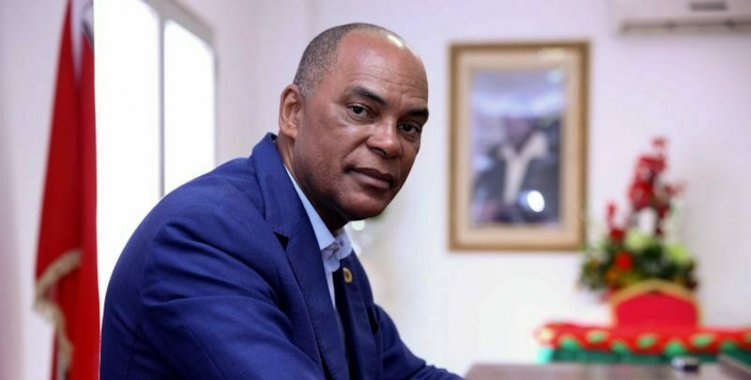"Those who think they can destroy the edifice of the democratic rule of law, manipulate courts, have no doubts, we are working hard to guarantee the security of the state", said Adalberto Costa Júnior, who was speaking at a meeting with opinion leaders representing civil society.
The meeting, which took place at a hotel in the capital, marked the end of Adalberto Costa Júnior's campaign for the presidency of UNITA, at the party's congress, scheduled for the next 2, 3 and 4 December.
In his initial intervention, Adalberto Costa Júnior assumed several commitments, namely that of carrying out a constitutional review based, among other aspects, on the resumption of the direct election of the President of the Republic.
Currently, the Angolan Constitution grants the head of the list of the party with the most votes in the national circle the right to exercise the leadership of the State, in what is an indirect election.
"We want to return sovereignty to Angolans (...) Today we have a President who takes a ride from Parliament. We want to reduce the excessive powers of the President of the Republic and make them supervised by Angolans", he defended.
For Adalberto Costa Júnior, the revision of the Constitution "is not just a project of alternation", it is a project "to fight poverty, because it excludes, violates and kills human rights".
Another commitment assumed is that of holding local elections "in all municipalities".
"Society has never been the target of listening to the models it would like to see implemented, the development strategies, which country we are today, which country we want to be", he highlighted.
At the end of the meeting, Adalberto Costa Júnior said "not to be afraid".
"I'm not afraid of this challenge. We're going to see it through to the end," he said, reaffirming his commitment to the United Patriotic Front, a political project that integrates UNITA, the Democratic Bloc and Abel Chivukuvuku, which leads a movement that seeks legalization as political party.
Adalberto Costa Júnior's campaign closing meeting took place a day after UNITA's Political Commission approved, for the second time, the holding of the XIII Congress on December 2, 3 and 4 and decided to preventively suspend the militants who appealed the Constitutional Court (TC) to make the date of the congress unfeasible.
The deliberations were taken on Sunday, at the II extraordinary session of the Political Commission, according to a note that Lusa had access to and in which UNITA stresses that it will not tolerate further interference "from the political courts of Angola".
At issue is an initiative of a group of militants who asked for the congress to be challenged with the leadership of the "Black Rooster" party and filed an injunction with the TC, alleging that the appointment of the conclave was made in an atmosphere of "intimidation".
At the Sunday meeting, the Political Commission reaffirmed the choice of date with 175 votes in favor (90 percent), 15 votes against (eight percent) and three abstentions (two percent) and highlighted that the parties' autonomy in internal management is guaranteed by the Constitution of the Republic of Angola and the Law on Political Parties.
"Under these terms, henceforth, UNITA will not tolerate the interference of the political courts of Angola in its internal life", the note reads.
In October, the TC annulled the XIII UNITA Congress, in which Adalberto Costa Júnior was elected, invoking a violation of the Constitution, forcing the party to maintain the previous leadership led by Isaias Samakuva.
The TC's ruling confirmed a group of militants who requested the nullity of the congress, invoking several irregularities, including the dual nationality of Adalberto Costa Júnior (Portuguese and Angolan) at the date of presentation of his candidacy for the elections of the XIII Congress.
The judgment was signed by seven of the 13 councilor judges and was not unanimous, with judge Josefa Neto having voted defeated.
The judge considered that the decision on this matter was "not only a violation of the aforementioned principle of autonomy, but also of the principle of minimal intervention by the Constitutional Court, which is equally necessary to safeguard the autonomy of political parties."







